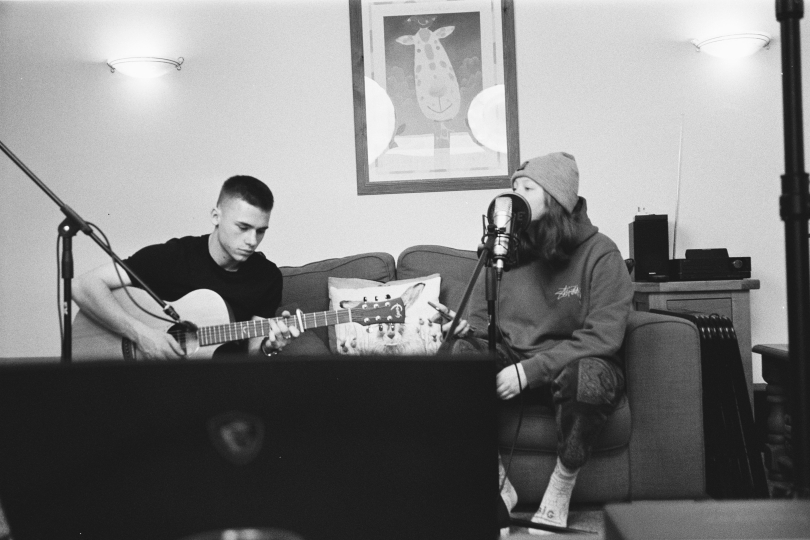
Music is Not Rocket Science #9: Two Crucial Mistakes of Starting Musicians
When you've been playing an instrument for many years, you'll find that one of the biggest challenges is staying motivated to develop and learn new things. You have to work on your intrinsic motivation which makes you step out of your comfort zone and push the possibilities of your personality. My students help me tremendously in this regard. Thanks to their questions and their unique approach to playing the bass, I'm constantly learning and working on new techniques too, getting to know new bands and musical styles, and looking for new suggestions and inspiration for lessons. Over the years, I've managed to identify a few recurring preconceptions about music education. Today, let's take a look at two major mistakes that hinder the development of not only beginner bassists but basically all people aspiring to be musicians.
We humans have an incredible ability to find shortcuts everywhere and make our jobs easier wherever we can. Our modern society spoils us with takeaway meals and online services for everything. At the press of a button, you can start mysterious machines that will do anything you can think of. But this ubiquitous comfort takes a toll on our mental and physical health. So it's not a bad idea to look at the most common impediments to our progress when starting to play an instrument or sing.
Lack of discipline
First on the list is the lack of discipline that results from a lukewarm attitude to the number of hours you have to spend practising the instrument or boring vocal exercises (if you have the ambition to sing). It's just like the New Year's resolutions about getting more exercise and eating better. In January, gyms are packed to the rafters with all the newly transformed consumers of a balanced, protein-rich diet. By February, it's back to business as usual and your favourite workout station with dumbbells is free.
Enthusiasm is beautiful, but it burns out as quickly as a candle from a discount store. You need an endless sea of love not to slack off or give up after a few weeks. Discipline without motivation will never last and your job is to play every day, at least six times a week. It's not important how long, but how often. This way you learn consistency and consistency always brings results.
Pretending to do things
Another popular procrastination activity is faking an activity. An active bee that doesn't produce a drop of honey. Do you know anyone like that at your work, for example? They're flying, running around, always in a hurry, but somehow no one knows what they've actually done. A similar case is the many players who watch hundreds of instructional videos or listen to long hours of podcasts believing that this is time well spent studying. Wrong! This is just entertainment which fills your free time, not productive learning to play an instrument.
Listen to one song a day and learn how to play it (whether it's the bass line, the backing guitar, the drum part or the lyrics and melody of the vocals). This is time spent productively. Always with an instrument in hand, always actively playing, always concentrating on one particular thing, whether it's downloading a song, practising scales, technique and so on.
Before we delve into our two main points, we can't fail to mention the overwhelming temptation of modern technology that often makes us question the purpose of our efforts. In the age of AI, does it even make sense to learn to play an instrument? This is where you need to figure out why you want to pursue it. For me, it's to experience the process. I've stopped worrying about the goal (i.e., fame, money, and success) and have focused solely on the journey (i.e., my experience playing the bass, whether it's practising at home, playing with other musicians or interacting with an audience at a concert).
You can also approach it purely scientifically and pragmatically because playing music is the most complex activity you can do to engage both hemispheres of your brain and perhaps delay the risk of Alzheimer's or cognitive loss in later life.
1. I sing out of tune, so I'd better just play
For years, I avoided not only singing but any vocalisation of whatever I was playing. This was due to childhood trauma as not only my parents but also my music teachers and basically everyone around me made it very clear that my vocal expression was out of tune and unlistenable. So I began to believe that I had no musical talent. Later when I started playing bass guitar, I avoided singing and vocalisation at all costs.
However, I focused all the more on rhythm, and my domain was music styles based on rhythm, such as funk, hip hop or rock and metal riffs. So I was able to play complex rhythmic patterns, but the moment you had me learn a simple melody by ear, I would struggle with it for hours.
It took me many years to overcome this handicap and only when I finally left my childhood trauma and started vocalising and also singing regularly, my melodic and harmonic sense improved dramatically. I could finally consider myself a complete bass player. But it could have happened much, much sooner if I had vocalised everything I practised from the beginning.
The other side of the coin is the physical expression of rhythm. When you play an instrument, tap your foot, move your body or head. Just express the beat with your body. You will gain incredible confidence in your phrasing and you will never fall out of rhythm.
The sooner you stop feeling self-conscious about the imperfections or limitations of your vocal fund and incorporate it into your practice routine, the sooner you will gain a natural tone, good phrasing and ease in playing. Become a musician first, then a guitarist, bassist or drummer.
2. Sheet music is only for professionals
Don't worry, I'm not going to nag you about the necessity of playing from sheet music. The choice is always yours. Unless you have professional ambitions, you don't have to be able to play "prima vista", i.e. play a piece from sheet music in real-time. However, understanding intervals, the relationship of scales and chords, modes of the pentatonic scale or the logic of symmetrical scales will help you understand the superpower of all brilliant players – the ability to visualise the fingerboard (or keys). Not only will you know what to play in G major, you'll see it.
Practical music theory can take different forms in specific playing situations – for example, guitarists know the names of the chords they play and can play them in different inversions. Bassists know what notes to play to a particular chord and which notes will sound best to melodically connect the harmony. And drummers understand the structure of a piece and arrange their parts accordingly.
It will also improve your communication in a band or any ensemble where several people play together. If you say what you're playing or what you want the other person to play in the universal terms of music theory, you can resolve the situation in seconds. If you communicate using interjections, esoteric descriptions of emotions or expressive sign language, you can spend several hours discussing a complete banality.
If you are at the beginning of your musical journey, start practising both vocalising and foot tapping while playing, making sure you know very well what you are actually playing. Visualise the fingerboard and identify the names of all the tones. Notice the intervals between the notes in your favourite tunes, and learn to play chords in all the different permutations and inversions. You'll find that your music performance will suddenly attract more attention and maybe even a word of appreciation.
If you have found an error or typo in the article, please let us know by e-mail info@insounder.org.





